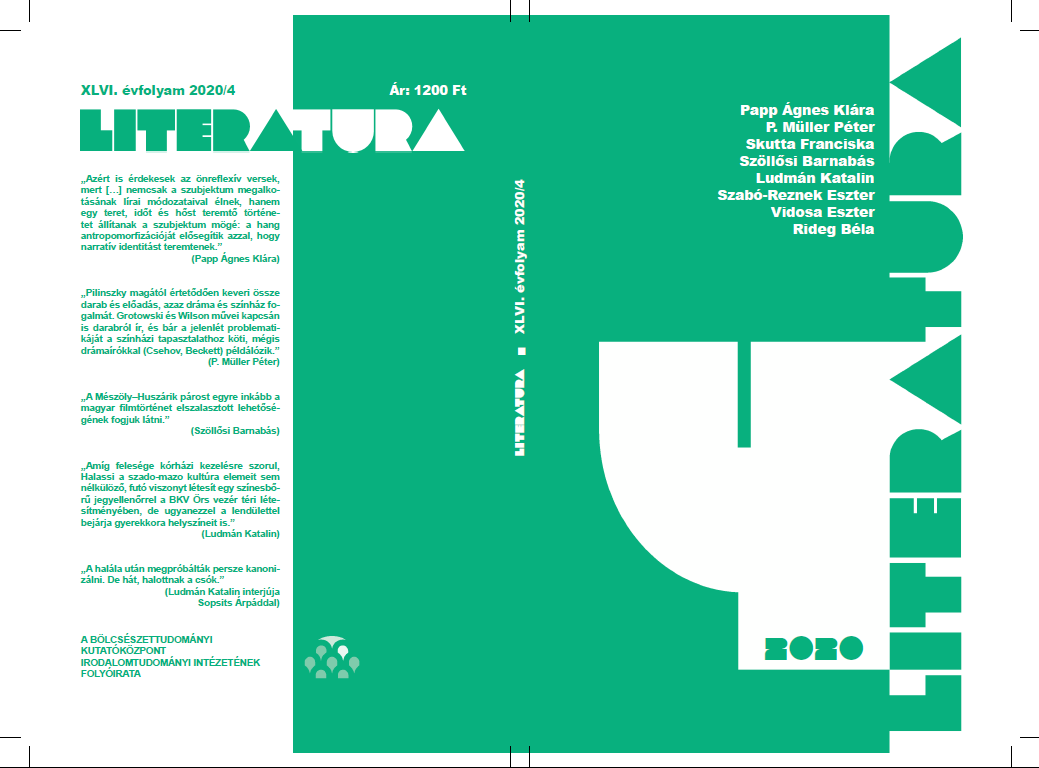Pilinszky János víziója a jelenlét színházáról
Absztrakt
János Pilinszky’s Vision of the Theatre of Presence
The paper deals with János Pilinszky’s thoughts on theatre, which he first expressed in the early 1960s in his short articles. His major inspirations were sacred, oratorical theatre and the theatricality of the liturgy of the catholic mass. He believed that the key problem of the theatre of his era was a lack of presence, in the sense that things do not actually happen on the stage, that everything there is mere mimicry. When he saw Deafman Glance by Robert Wilson in 1971 in Paris, the static and subversive production gave him the impression that it was the realization of his theatrical ideals. It was also the consequence of Wilson’s effect that within a short period of time, he wrote several stage plays which were published in his 1974 volume Végjáték (Endgame), including poems and four plays. The poet’s last book published within his lifetime, in 1977, was Beszélgetések Sheryl Suttonnal: Egy párbeszéd regénye (Conversations with Sheryl Sutton: Novel of a Dialogue). In this work, which clearly shows Wilson’s influence, Pilinszky summarizes all his thoughts about theatre, that he had raised in his earlier articles. The volume is exceptional in that everything that Pilinszky penned earlier, in his articles and essays, appear here as part of an imagined dialogue, as fiction. Pilinszky pretends that he is deriving his ideals and aesthetics of theatre from the theatre of Robert Wilson and the acting of Sheryl Sutton. The paradox of Pilinszky’s vision of theatre is that he longs for a presence that is simultaneously static and ecstatic. Moreover, during the explanation of these ideas, he continuously changes contexts and registers, from op-eds to theatre reviews, then into his own theatre pieces, and then he recycles his previous statements on theatre as a form of fiction.



